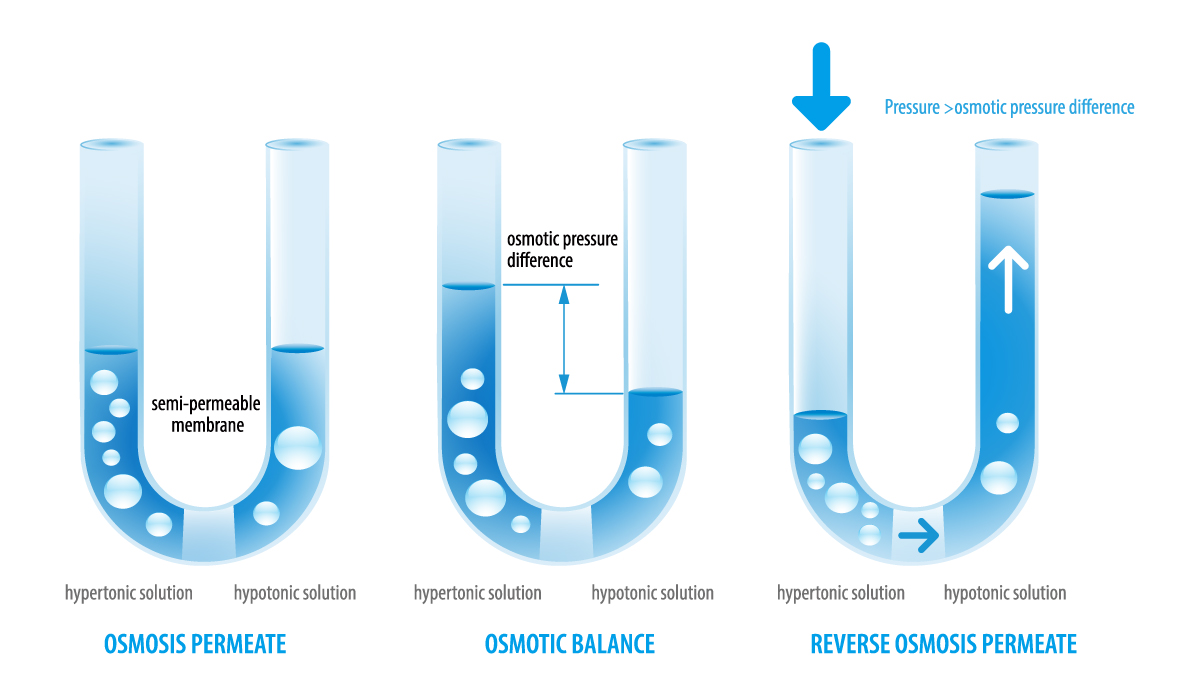What Does Reverse Osmosis Mean?
Q1 What is Reverse Osmosis?
Definition of Reverse Osmosis is a water filtration process that uses pressure on a semi-permeable membrane to reverse the natural flow of osmosis. Osmosis is a natural process that takes place across many membranes in your body. Water can flow through the membrane, but salts cannot. If the salt concentrations on both sides of a membrane are different, water will flow through the membrane from the side with the lower salt concentration to the side with the higher salt concentration. This creates pressure on the side with the higher concentration. RO is a process that creates pressure on a solution of water with salt or contaminants, forcing pure water through the membrane where it is collected for use. Because the water is forced through the membrane in the direction opposite to what it would flow under normal osmosis, the process is called reversal osmosis, or RO for short.


